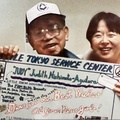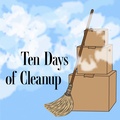Keiko Shinshi hadn’t been feeling well for days.
Her husband, Tatsutaro, thought it was because the last mulberry tree in the colony had died. Their silkworm room seemed like a gravesite, with the remains of shriveled up caterpillars lining the floor. A few cocoons were hanging from trees branches that his wife brought in. It was quite a barbaric process, with the cocoons being dropped into boiling vats of water so that the silk exteriors could be removed. In other words, the silkworms were cooked alive.
The production of silk had been Keiko’s consuming activity ever since they arrived in Wakamatsu in 1869. Her husband, who was several years younger, was proud of her; she had gained the reputation of being the best producer in the colony.
Now, with Wakamatsu teetering on financial ruin, Keiko’s day in the sun was coming to an end. She understood this and uncharacteristically had become listless. She spent most of her time now in their straw-filled bed, cockroaches running on the floor because sometimes the house had not been cleaned for days.
“Keiko, maybe this is time for us to leave,” he said after digging some irrigation ditches with some carpenters.
“Where can we go?”
“We can go back to Japan.”
“But how? We are here on a technicality, anyway. We shouldn’t have been able to leave Japan, anyway. How can we return?”
“Makoto met with a Japanese envoy in San Francisco. Some gannenmono are petitioning to return to Japan. There’s also talk about going to San Francisco to talk to the consulate.”
Keiko had heard her husband mentioning the gannenmono, the ones who had been first sent to the islands of Hawaii to work the plantations. The work conditions had not been what had been promised. Ha! Neither had been the Wakamatsu Colony, but that had been the flimsy promises of a man, John Henry Schnell, and not the government.
Keiko didn’t want to think about the long boat ride back home. And then what would they do back in Japan? Their hometown was in ruins. They were childless and had nothing to look forward to.
“Just let me sleep,” she told Tatsutaro.
Tatsutaro grunted.
* * * * *
Tatsutaro didn’t waste any time to beseech John Henry Schnell at his home. Schnell’s young daughters were barefoot and playing with a black cat that had been left behind by a young female colonist. Their young nanny, Okei, was looking especially pale and peaked these days. Tatsutaro wondered if she might be ill.
“You have to do something,” he told Schnell. It had not rained for weeks. The irrigation ditches were filled with dirty water polluted by the old mines. All the tea plants had died. Only a handful of colonists still remained.
“Lord Matsudaira will save us,” Schnell said, his face flushed with the local wine.
Tatsutaro feared that Schnell had lost his mind. Everyone knew that while Matsudaira’s life had been spared by the Meiji emperor, the former daimyo was rumored to have become a priest of the Nikkō Tōshōgū Shrine. How in the world could Matsudaira financially help them now?
Tatsutaro knew that he had to come up with a plan for him and Keiko, but what? Some carpenters discussed working to build a hotel in a neighboring town. He could possibly do such work, but he was primarily a farmer. He was supposed to make things grow, although he had failed miserably in America so far.
Since Schnell didn’t seem to be of any help, Tatsutaro left, merely bowing goodbye to Schnell’s wife, Jou. As he shut the door, he heard noise in the surrounding trees and thought that they might be squirrels or crows. But it was a person, Makoto’s strange roommate who talked to himself. He was talking right now, muttering about the Boshin War and how they needed to take cover.
* * * * *
The next morning, Keiko was vomiting and Tatsutaro went to call the doctor. At one time they had an herbalist that tended to their medical needs, but he had left months ago. This doctor was a hakujin, so thin that Tatsutaro could see his blue veins pumping blood in his arms.
Keiko at first refused to be seen by the doctor, saying that she didn’t want a gaijin to be touching her body. “We are the gaijin in this country, Keiko. I’ll stay while he is examining you.”
It was embarrassing for Tatsutaro to hear the invasive questions that doctor was asking. When she had her last period. When they last had relations. What did any of this had to do with her sickness? After he felt her belly, he got up and gestured for Tatsutaro to follow him into the other room.
“Your wife is pregnant,” the doctor said.
“It can’t be,” Tatsutaro responded. For years they had tried to have a baby. Now Keiko was old enough to be a grandmother. How could this have happened?
“Sometimes it’s a change of scenery,” the doctor said. “Who knows? But God has smiled upon you.”
After the doctor left, Tatsutaro could not move from his chair. Tears began to flow. Of all things to happen, who could have predicted this?
* * * * *
Before Tatsutaro told Keiko the news, he felt that he had to put everything in order. He swept the kitchen, removing rat droppings and cockroach carcasses. He stripped the silkworm room clean. He visited Makoto to get more information about his trip to San Francisco. Before leaving the bachelor’s accommodations, he saw that the bunk bed of the strange roommate, Kintaro, was empty. “I saw Kintaro by Schnell’s house yesterday. It was almost like he was spying on him. Kimiwarui.” It was spooky, almost like a ghost staring into a home he used to live in.
“He’s been obsessed with Schnell. He claims that Schnell is the cause of all our problems. That he even started the Boshin War.” Makoto said that he had to even hide all the knives and other tools they had used to build structures. There was no telling what Kintaro would do.
Tatsutaro was alarmed, but nothing that lasted beyond their conversation. All he cared about was Keiko and their baby that was on the way. After buying some foodstuffs from the general store, he made his way back to their house.
Keiko was sitting up at the front table. She apparently was feeling better. “You’ve cleaned,” she said. “Why did you disappear after the doctor’s visit?” She feared the worst. She assumed that she had a serious disease that would cut her life short.
Tatsutaro sat across from her. “Keiko, you are pregnant,” he said.
“Impossible,” she replied, thinking that her husband was playing a cruel trick on her.
“No, the doctor said that you are pregnant. It’s true.” He placed the food on the table. “You need to eat and move your body. You need to get strong. Because we will be going home to Japan.”
“But how? And where will we go in Japan?”
“I’m not sure. But we cannot have our baby here.”
Keiko sat in silence for a while. She then picked up an apple from the table and prepared to take bite. “You are right, husband. America has been full of death. We cannot have a new life here.”
© 2020 Naomi Hirahara




